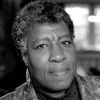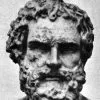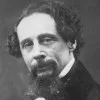Lightning and thunder need time, the light of the stars needs time, deeds need time, even after they are done, to be seen and heard.
[Blitz und Donner brauchen Zeit, das Licht der Gestirne braucht Zeit, Thaten brauchen Zeit, auch nachdem sie gethan sind, um gesehen und gehört zu werden.]
Friedrich Nietzsche (1844-1900) German philosopher and poet
The Gay Science [Die fröhliche Wissenschaft], Book 3, § 125 (1882) [tr. Common (1911)]
(Source)
On the death (murder) of God.
The book is also known as La Gaya Scienza, The Joyful Wisdom, or The Joyous Science.
(Source (German)). Alternate translations:Lightning and thunder require time; the light of the stars requires time; deeds, though done, still require time to be seen and heard.
[tr. Kaufmann (1974)]Lightning and thunder need time; the light of the stars needs time; deeds need time, even after they are done, in order to be seen and heard.
[tr. Nauckhoff (2001)]Even after they are over and done with, thunder and lightning take time, the light of the stars takes time, and deeds too take time, before they can be seen and heard.
[tr. Hill (2018)]
Quotations about:
senses
Note not all quotations have been tagged, so Search may find additional quotes on this topic.
Beware:
All too often,
We say
What we hear others say.
We think
What we’re told that we think.
We see
What we’re permitted to see.
Worse!
We see what we’re told that we see.
Repetition and pride are the keys to this.
To hear and to see
Even an obvious lie
Again
And again and again
May be to say it,
Almost by reflex
Then to defend it
Because we’ve said it
And at last to embrace it
Because we’ve defended it
And because we cannot admit
That we’ve embraced and defended
An obvious lie.Thus, without thought,
Without intent,
We make
Mere echoes
Of ourselves —
And we say
What we hear others say.Octavia Butler (1947-2006) American writer
Parable of the Talents, ch. 18, epigram (1998)
(Source)
Internally cited to the book's scripture, Earthseed: The Books of the Living,, and to a poem, "Warrior," written by the protagonist's uncle, Marcos Duran.
Nothing we use or hear or touch can be expressed in words that equal what is given by the senses.
Hannah Arendt (1906-1975) German-American philosopher, political theorist
The Life of the Mind, Vol. 1 “Thinking,” Introduction (1977)
(Source)
Reprinted in "Thinking -- I" New Yorker (21 Nov 1977).
By convention sweet is sweet, by convention bitter is bitter, by convention hot is hot, by convention cold is cold, by convention color is color. But in reality there are atoms and the void. That is, the objects of sense are supposed to be real and it is customary to regard them as such, but in truth they are not. Only the atoms and the void are real.
[νόμωι (γάρ φησι) γλυκὺ καὶ νόμωι πικρόν, νόμωι θερμόν, νόμωι ψυχρόν, νόμωι χροιή, ἐτεῆι δὲ ἄτομα καὶ κενόν]
Democritus (c. 460 BC - c. 370 BC) Greek philosopher
Frag. 0 (Diels) [tr. Bakewell (1907)]
(Source)
Cited to Tetralogies of Thrasyllus, 9; Sext. Emp. Math VII 135. Alternate translations:
- "Sweet exists by convention, bitter by convention, colour by convention; atoms and Void (alone) exist in reality ... We know nothing accurately in reality, but (only) as it changes according to the bodily condition, and the constitution of those things that flow upon (the body) and impinge upon it." [tr. Freeman (1948), frag. 9]
- "By convention sweet is sweet, bitter is bitter, hot is hot, cold is cold, color is color; but in truth there are only atoms and the void." [tr. Durant, from Bakewell]
Nothing we use or hear or touch can be expressed in words that equal what is given by the senses.
Hannah Arendt (1906-1975) German-American philosopher, political theorist
The Life of the Mind, Vol. 1 “Thinking,” Introduction (1977)
(Source)
Reprinted in "Thinking -- I" New Yorker (21 Nov 1977)





